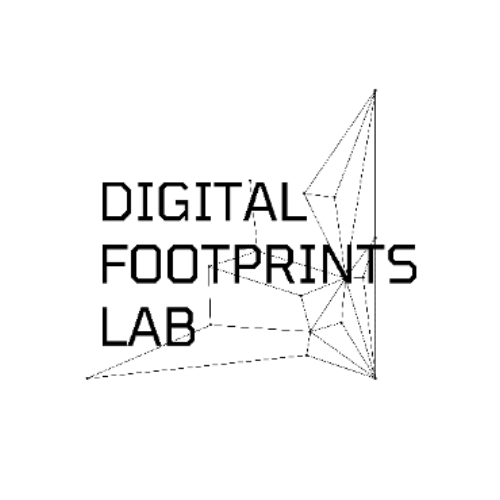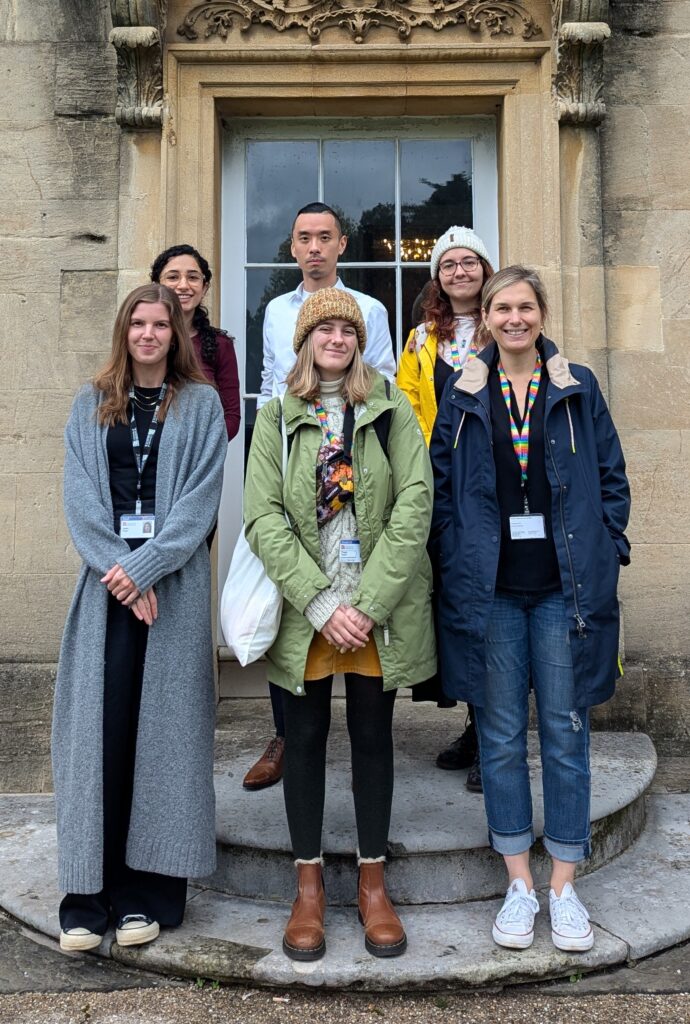The Digital Footprints Lab team on using shopping data in research
For our World of Smart Data blog series, we welcome the team from the University of Bristol’s Digital Footprints Lab. Here, they explain how the growth in the collection of smart data from loyalty cards creates opportunities for researchers to gain new insights into people’s spending habits and lifestyle choices.
The opportunity of shopping data
Businesses create loyalty schemes to collect shopping data from customers. When shoppers scan their cards at the checkout or collect points online, stores can analyse the products consumers purchase, how frequently they shop and their spending habits. Retailers typically use this data to manage stock and tailor marketing efforts, such as personalised discounts and offers.
There is a growing interest in this shopping data among social scientists and health researchers.
At the Digital Footprints Lab, we are particularly interested in analysing transaction data to benefit public health. We believe the data offers a unique opportunity to gain more objective insights into human behaviour.
Smart data from loyalty cards is less likely to contain the same types of biases as traditional questionnaires. The frequency and granularity of personal shopping data also far exceeds the scale of questionnaire data.
The challenges of transaction data
As well as the opportunities, there are several factors to consider when analysing transaction data, particularly loyalty card data.
One issue is the inconsistent usage of cards. Another is the possibility of people sharing their loyalty cards with family members or friends. These challenges make it difficult to infer consumption from purchase patterns and to predict health and well-being outcomes. Anya Skatova from our team discusses this topic in this study.
Being aware of these challenges enables us to carry on using transaction data, improving our understanding of population behaviour and accelerating advancements in public health and well-being research.
Studying food consumption habits using loyalty card shopping data
Techniques traditionally used to analyse food consumption include questionnaires, surveys and diaries. However, we know these methods are prone to underreporting and recall biases.
This is where loyalty cards become such a valuable tool in public health research. Recent studies have proven the validity of using this shopping data, specifically when observing food consumption habits.
Our 2019 paper used data from a major UK health and beauty retailer to study variations in lunchtime calorie consumption. The study analysed nearly three million ‘meal deal’ transaction records from over 200,000 individuals across one year. We wanted to investigate if there was a link between consumer purchasing habits and lunchtime calorie consumption.
The dataset included the calorific content of items purchased and the time/date when transactions were made. A subset of the dataset also included the gender, income and education for customers who consented to share this information. This enabled multiple aspects of consumption to be studied, including time-sensitivity.
Findings from our analysis
Previous research had indicated there was a link between the time at which food was purchased and the calorific content of the food itself. This research also suggested that lower socio-economic status causes higher calorific lunchtime purchases. We found similar results in our study. It showed that lower income was associated with a higher consumption of calories. But we were also able to conclude that a person’s education had no effect on their calorie intake for lunch.
We also analysed the meal deal data at three different timescales to understand the variation of consumption habits over the time of day, the day of the week and the month of the year. This revealed that higher calorie purchases were made at the end of each of these time periods ie. if a person was later for their lunch, towards the end of the week or the end of the year.
The findings also suggested that the ‘fresh-start’ effect might not only happen on a yearly time scale, for example, eating more healthily in January after Christmas and the New Year celebrations, as previously reported. Our research showed that this behavioural habit exists on a much smaller scale, implying that people needed a daily/weekly ‘pick me up’.
Understanding these outcomes could help improve eating habits, leading to a more stable lunchtime calorie intake across the UK.
Further work is ongoing in this area as we look to build on evidence that food choice is associated with deprivation and obesity. Using data from a British supermarket chain, we are starting to develop methods that use food transaction data to indicate how consumer dietary choices are associated with indicators of wellbeing.
Longitudinal population studies
Researchers in our lab have also been developing methodologies to accurately link loyalty card data to Longitudinal Population Studies (LPS). LPS involves recruiting cohorts of people who are willing to provide in-depth health and well-being, life event and outcome data over a long period of time for research purposes. LPS studies have been invaluable in understanding the cause and effect of specific events and changes in behaviours over time. Integrating these datasets with Digital Footprints has the potential to unlock further insights into population research. We recognise the potential challenges that come with such linkages on both a technical and ethical level.
Accelerator funding from Smart Data Research UK will help us explore this further over the next year, and we look forward to sharing an update on our progress in the spring.
Work has been ongoing at the University of Bristol to ensure that the linkage between supermarket data and LPS happens in an ethical way. We’ve developed a framework that is agreed to by both the participants and businesses who own the data. We are also working to ensure that the accuracy and completeness of data linkage is preserved through the correct methodologies. This will ensure that future analysis of this data is well-founded.
New research
At the Digital Footprints Lab, we want to use loyalty card data to investigate multiple facets of health. These include chronic pain conditions (via over-the-counter medicines), menstrual pain (via over-the-counter medication purchases), and the consumption of ultra-processed foods.
We are currently researching several other areas relating to the use of loyalty card data within health research. These include the ethical implications of collecting this data, with a focus on the public’s perception of data collection.
We’re also looking at the current and future effectiveness/success of multi-disciplinary collaboration within this field, with the focus of research being for ‘public good’.
There is already strong collaboration between research experts within the scientific community (through The Alan Turning Institute Interest Group, co-chaired by Anya Skatova). However, our group is also passionate about developing external relationships with industry stakeholders and the public. We believe fostering these connections is crucial for advancing our understanding of public health at a more rapid rate, through the open sharing of data, techniques, and methodologies.
Working with the public
Public engagement plays an important part in the research undertaken at the Digital Footprints Lab. In Bristol, we have collaborated with We The Curious and their Open City Research programme. The aim of this collaboration was to learn what the public thinks about sharing their purchasing habits for health research and to increase awareness of our research.
So far, the feedback has highlighted that people in general are positive about sharing their data if they understand the purpose and if they trust the research organisation. It re-emphasises the value of transparent and ethical data collection, storage, and usage. This enhances the trust between the scientific community and the public (who we rely on to provide this data).
Find out more
If you would like to discover more about the Digital Footprints Lab’s research on loyalty card data and public health, please check out our website. It gives an overview of who we are, what smart data we are interested in and why, and how we need the public’s help to achieve these advancements in health and well-being research.
Our current research is supported by the UKRI Future Leaders Fellowship and Smart Data Research UK.
Authors
- Dr Anya Skatova, Senior Research Fellow – @anyaskatova.bsky.social
- Dr Laura Fryer, Senior Research Associate
- Dr Neo Poon, Senior Research Associate
- Dr Romana Burgess, Senior Research Associate – @romanaburgess.bsky.social
- Dr Alisha Suhag, Senior Research Associate – @alishasuhag.bsky.social
- Poppy Taylor (PhD Candidate)
Further reading
https://informatics.bmj.com/content/31/1/e101119
https://www.nature.com/articles/s41746-024-01231-4
https://osf.io/preprints/psyarxiv/ah8jp
https://journals.plos.org/plosone/article?id=10.1371/journal.pone.0224240
Digital Footprints Lab
The Digital Footprints Lab is based at the University of Bristol and consists of multidisciplinary researchers from various backgrounds, including data science, psychology, health science, banking and digital health. Our aim is to bring together our individual expertise to unlock the scientific potential in digital data trails, for public good. Follow us @digifootprintslab.bsky.social.


